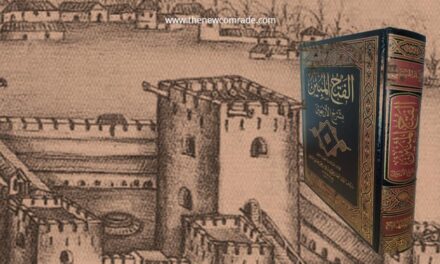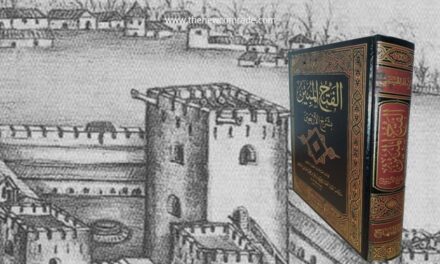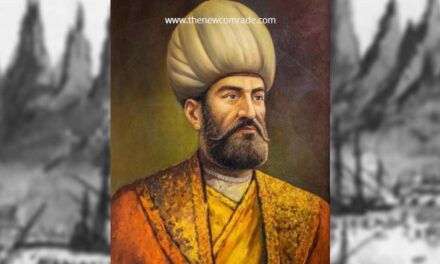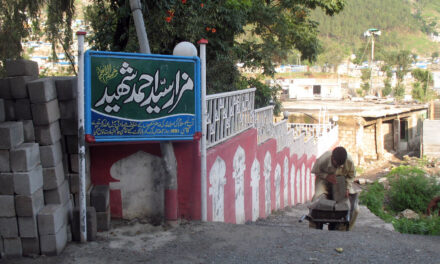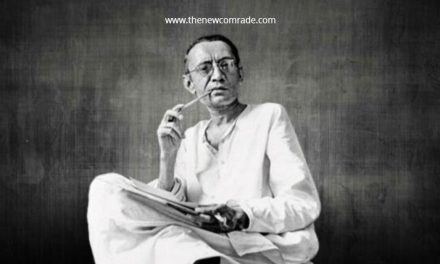
Qazi Muhammad’s Fath-ul Mubeen and the Fight Against Foreign Colonialism
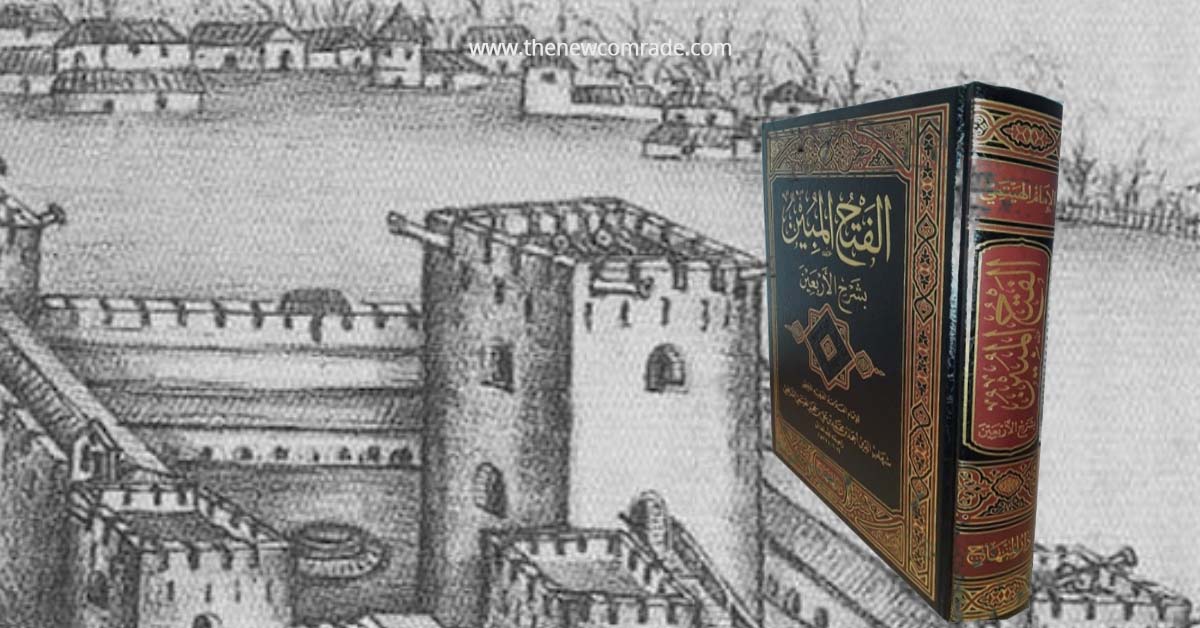
Fath-ul Mubeen, the long poem written in Arabic by Qazi Muhammad I, is one of the earliest literary works
against foreign colonialism in India. This poem was written at the end of the sixteenth century. This great work
consists of 537 verses. Detailed historical analysis, keen and thorough observation and objectivity are the
hallmarks of this work. It is also to be noted that the poem reveals a golden period of communal harmony in
Kerala. This great piece of literature has succeeded in promoting and spreading the spirit of nationalism so as
to initiate resistance against any foreign attacks.
The full title of this poem composed by Qazi Muhammad ibn Abdul Azeez (Qazi Muhammad-I), the
most famous and eminent writer, in Arabic is Al Fath-ul Mubeen li Zamiri alladi Yuhibbul Muslimeen. This
can be translated as the ‘Clear Victory Dedicated to the Zamorin who Loves Muslims’. This great work
consists of 537 verses. Detailed historical analysis, keen and thorough observation and objectivity are the
hallmarks of this work.
The theme of Fath-ul Mubeen is the exciting history of conquering the fort built by the Portuguese at
Chaliyam by the Nayar-Muslim forces of the Zamorin. The conquest of Chaliyam fort can also be read in the
13th chapter of the fourth section of Tuhfat al-Mujahidin. The Portuguese leader Diago Dasilvera influenced
the king of Tanurthrough whom he made the Zamorin agree to the proposal of building a fort at Chaliyam. His
eye was on the military and trade possibilities of Chaliyam. Chaliyam was the most suitable place for both
knowing the course of trade between Kozhikode and Arabia and also to launch attacks. Hence the conquest of
Chaliyam fort was a great relief to the Zamorin and Muslims. At the same time it was a great blow to the
Portuguese.1
There was another matter to reckon with. Both the Zamorin and the Muslims expected that a global
Muslim alliance against the Portuguese could be possible. In order to materialise this expectation several
correspondence were carried out to Muslim kings and Sultans in and abroad India. The letters in Arabic were
prepared by the author of Tuhfat al-Mujahidin, Shaykh Zainuddin.2 But these letters did not bring expected
results. Arakkal Ali Adi Rajah wrote to the Bijapur sultan, Ali Adil Shah, requesting him to help the Malabar
Muslims and the Zamorin just before the victory over the Chaliyam fort. Subsequently Ali Adil Shah in Goa
and NizamSha of Ahmed Nagar in Choul attacked the Portuguese – both for different reasons went into
conciliation with the Portuguese.
It is surprising to note that the Zamorin and the Muslims in Malabar conquered the Portuguese fort
without any outside support. It is because of this that it is described as a clear victory. It is because of the same
reason that the poet showers praises on the Zamorin in excess and attributes to him several qualities in this
poem. The poet showers eulogy over the Zamorin for exceptional courage and determination shown
throughout the long forty years of severe struggles that ended victoriously. He prays for the Zamorin after
pointing out the fact that it was the Zamorin alone who came to the rescue of Muslims when all other Muslim
rulers all over the world kept silence.
The poet says that he composed the poem in Arabic itself so that the rulers in Arab-Muslim countries
could realise the glory of the Zamorin and the miserable conditions of the Malabar Muslims. He expected that
his work in Arabic would motivate Muslims all over the world against the Portuguese power since Arabic was
a world language. Muslim scholars and Qazis were in the forefront of the battle against the colonial forces.
Some of the important personalities among them were Shaykh MamuKoya of Kozhikode, Shaykh Abdul
Azeez Makhdum Maubari, etc. Qazi Muhammad-I had direct involvement in this battle, together with his
father. This poem can also be regarded as an eye-witness’s account of the war.
This work was composed between the period of 1579 and 1607. The battle of Chaliyam took place in 1571.
The poet points out with deep regret the peace treaty signed by Bijapur Sultan, Ibrahim Ali Adil Shah and the
Portuguese in 1579.This great historical poem begins by offering praises to god and prayer for the Prophet .
Thereafter it enters into the real content of the poem. It describes the unique battle fought between the Zamorin
and the Portuguese.
“Let me describe a wonderful story of a strange war which broke out in Malabar province, the like of
which had never occurred in that province before.
This occurred between Zamorin, the lover of Muslims and his ungrateful Portuguese opponents”.3
The purpose of writing the poem in Arabic is mentioned:
“By God, the king of kings, I composed some of them in poetry so that other kings can hear the story.
When they hear they may think of war or else they will take lessons out of it.
The news of the war will perhaps spread all over the world, especially in Sham and Iraq”.4
It is followed by the poet’s expression of love for the Zamorin:
“Let them know the courage of the world famous Zamorin who by the grace of god, the source of all
prosperity continues to be the ruler of the reputed populous Calicut.
He is the lover of our religion, Islam and Muslims over the others.
He is the helper of our religion, executor of our Shariah. Further he insists upon saying benedictory
prayers for our Caliph Turkey Sultan in the Friday address to the congregation.
Muslims wherever they are in Malabar are all his subjects”.5
Then it speaks about the system of administration of the Zamorin and his sense of justice:
“He will not confiscate anybody’s property unjustly nor will he hurt anyone.
He will not confiscate the countries of his subordinate kings and when they disobey, he will forgive
them on accepting their gifts.
He will not forgive the disobedience of a great king except by taking over his country however small
it be.
(He does all this) as per the admonition of his predecessors and the successor king (Zamorin) does not
forget to abide there by”.
In the subsequent sections, the poet is all praise for the bravery of the Nayar forces of the Zamorin. He
also asks the Muslims to pray for the Zamorin who fought against the Portuguese when Muslims rulers were
engaging themselves in treaties with the foreign power.
“Oh Muslim, it is incumbent on every Muslim to pray for him.
Because ironically enough a king who is not a believer in Islam fight for the Islamic cause whereas a
Muslim king doesn’t fight at all,
For their religion and the religion of Muslims; but the Muslim kings struck a compromise with their
Portuguese enemies”.7
In verses 53 to 72, the poet speaks about the arrival of the Portuguese and their ulterior motives behind
their arrival.
“They come to India for trade like the swarms of locusts out to wreck the social set up and the business
establishments of Indians.
The purpose of their advent was to monopolise (the trade of costly commodities like) pepper and ginger
for themselves by eliminating competition with empty promises while allowing small fishes to trade in
coconuts.
It was in the year of 903 A.H with his men, he (Vasco da Gama) came to the Zamorin with gifts and
told him that he wanted to be an ordinary subject.
And he (Vasco da Gama) assured him that he would make the country prosperous and save it from the
enemies and rebellions will be quelled.
He (Zamorin) exalted him over all the others and rejected the advice of the citizens.
They said: “Certainly he (Vasco da Gama) will destroy our country” and added: “we are speaking on
the basis of experience”.
Thus the Portuguese people behaved like obedient servants until they gained full strength. Then they
started behaving arrogantly.
Subsequently they conquered countries up to China and many territories in India including Sindh”.8
Thereafter the atrocities and attacks of the Portuguese are described.
“They burnt countries, demolished mosques and men were reduced to slavery.
They killed many innocent people and harassed all passers-by”.9
Then he goes on to talk about the event that bred enmity between the Zamorin and the Portuguese.
“They defied Zamorin. Earlier they had cringed before him like an abject slave.
They indulged in incessant vexation and engaged in treacherous plots.
Zamorin’s experience was that of master bitten by his own faithful domestic dog.
By treachery they even entered the palace of Zamorin, but the trespassers were all assassinated”.10
______________________________________________________________________________________________________
1 Shaykh Zainuddin, Tuhfat al-Mujahidin, Mal. trans. C. Hamza, p. 35
2 Shaykh Zainuddin, Tuhfat al-Mujahidin, Mal. trans. C. Hamza, p. 35.
3 Qazi Muhammad, Fath-ul Mubeen, Eng. trans., P.G. and Research Dept. of Arabic, Farook
College, verses 7-9
4 Fath-ul Mubeen, verses 12-14
5 Fath-ul Mubeen, verses 15-19
6 Fath-ul Mubeen, verses 34-37
7 Fath-ul Mubeen, verses 49-51
8 Fath-ul Mubeen, verses 59-67
9 Fath-ul Mubeen, verses 73-74
10 Fath-ul Mubeen, verses 75-78
Author Profile






